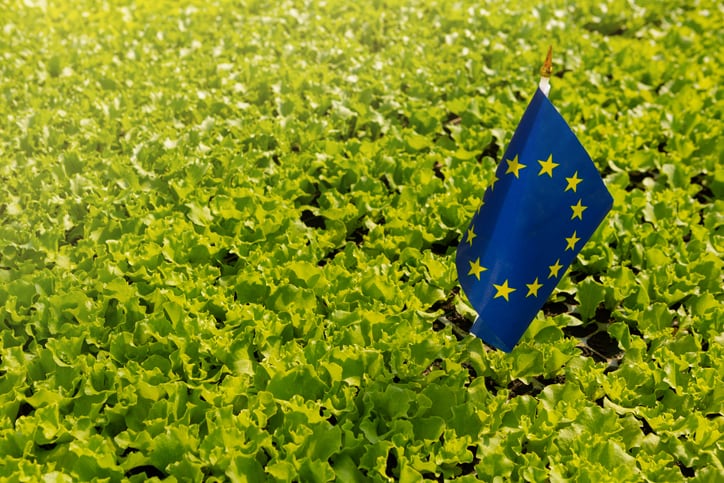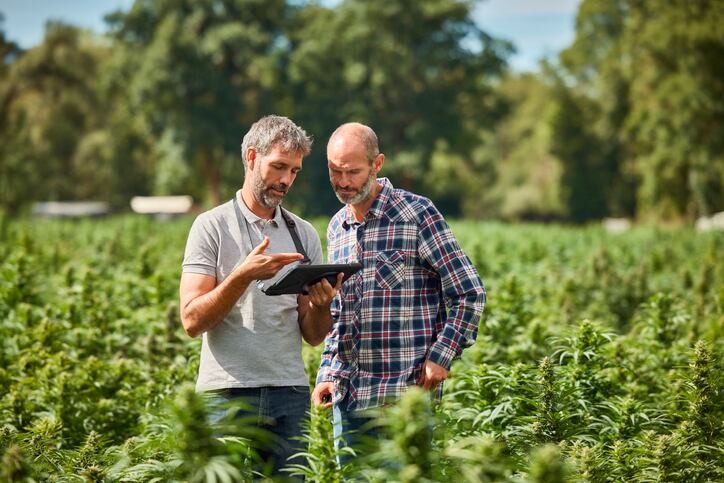Amid ongoing globalisation and technological innovation, consumer demands for transparency and food safety throughout the supply chain are on the rise. Digital traceability has emerged as a promising solution due to benefits like enhanced food safety, improved transparency and increased consumer trust.
Digital traceability offers benefits like enhanced food safety, supply chain transparency, and real-time tracking capabilities. Technologies like blockchain and QR codes play important roles in ensuring the authenticity and integrity of ag-food products.
However, challenges — such as the lack of standardised regulations, implementation costs, diverse economic and regulatory environments, and rapid digital technology evolution — pose significant hurdles to widespread adoption.
With this in mind, researchers in Canada embarked on a comparative analysis to assess the adoption and impact of digital traceability across OECD member countries. The study — conducted by researchers at Dalhousie University, the University of Toronto, McMaster University, the University of Manitoba and the Canadian Agri-Food Foresight Institute — delved into the challenges, regulatory frameworks and technological advancements surrounding digital traceability in the ag-food industry.
Disparities and development opportunities
The study identified various challenges the ag-food industry faced in OECD countries when it came to implementing digital traceability, ranging from regulatory disparities to limited data availability and infrastructure constraints, particularly in low-resource communities.
Collaboration among stakeholders, including governments, industry players and technology providers, emerged as a crucial strategy to overcome these challenges. Governments can play a pivotal role in establishing regulatory frameworks, incentivising adoption and collaborating with industry stakeholders to develop comprehensive strategies for integrating technology into supply chain operations.
EU to the rescue?
The study found the EU to be at the forefront of digitising its agri-food supply chains, with initiatives like TRACES (Trade Control and Expert System) and the Food Security Index that use innovative technologies to ensure compliance with health and safety regulations. Furthermore, the EU's Farm to Fork Strategy, as well as projects like AgriDataSpace and the Titan project, indicate its commitment to leveraging digital technology for a sustainable food system.
Slovakia, for instance, has been pro-active in adopting blockchain for food traceability, supported by government initiatives. While the extent of implementation is unclear, partnerships with blockchain firms signal its commitment to digitisation.
Portugal has also embraced blockchain technology in its supermarket sector, promoting transparency and consumer trust. Further digital traceability integration across ag-food products in the country indicates a progressive shift towards sustainability.
Additionally, Spain stands out for its substantial investments in digital traceability, driven by government funding and private sector innovation. Blockchain applications in major supermarket chains ensure comprehensive product tracking, bolstering food safety and quality standards.
With a national food strategy focusing on sustainability and innovation, Sweden aims to be a leader in digital traceability. Initiatives like digital ‘Product Passports’ demonstrate a forward-looking approach that promotes transparency and consumer engagement.
Switzerland has similar goals, with its fTrace solution exemplifying robust data management and consumer engagement. Collaboration with industry leaders like Migros highlights the country's commitment to sustainable supply chains.
With subsequent investments (largely in AI applications for farming and ICT for food traceability) totalling over €500,000 last year, Ireland is steadily progressing towards its ambitious Food Vision 2030 strategy, aimed at positioning the country as a global leader in sustainable food systems.
Italy boasts several industry-driven initiatives, such as Trusty and Trackyfood, leveraging blockchain to certify food product information and enhance supply chain transparency. Leading companies like Barilla Group have pioneered digital traceability, receiving accolades like the Blockchain Award in 2019 for its innovative solutions.
While smaller European nations like Latvia and Lithuania are making strides in digital traceability within specific industries, Norway stands out for its major pioneering projects like the eSporing Traceability project, which highlights its commitment to digital innovation in ag-food supply chains.
In Poland, however, robust digital traceability systems are lacking. While compliant with EU regulations, the country’s ag-food industry still relies on conventional methods. Still, its transition to electronic customs clearance signifies a step towards digitization, enhancing both trade efficiency and food safety.
Progress and pitfalls outside the EU
Australia has made significant strides in enhancing digital traceability, particularly in the red meat and horticultural sectors. Through initiatives like Agrifood Connect Trace2Place and partnerships with organisations like Meat & Livestock Australia Limited, the country aims to improve transparency and safety in its supply chains. However, challenges remain in scaling these initiatives and ensuring widespread adoption across the agricultural sector.
In the UK, the Digital Sandwich Project and regulatory frameworks like the Food Traceability Rule signify its dedication to digital innovation in food safety. Collaborative efforts between government, industry and academia drive advancements in traceability technologies.
In the US, the Food and Drug Administration’s (FDA) 'New Era of Smarter Food Safety' initiative highlights the country’s commitment to digital traceability. While regulations like the Food Traceability Rule provide a solid framework, industry-driven initiatives and investments drive widespread adoption of digital systems.
But despite its robust regulatory framework, its neighbour Canada still grapples with funding constraints and increasing farmer adoption of new technologies. Similarly, Chile and Colombia face challenges related to infrastructure and information integrity, hampering efforts to digitise their ag-food supply chains.
In contrast, food safety concerns have led Japan to develop advanced systems like the Individual Identification Register for beef. Despite substantial investments in ICT, however, challenges persist in fully integrating digital traceability across the ag-food sector, with budgetary constraints and regulatory complexities posing significant barriers.
South Korea, on the other hand, benefits from a joint initiative between government ministries and major companies to implement blockchain technology for beef traceability. Leveraging KT's 5G blockchain network and NDS's expertise, the project aims to automate processes and enhance consumer trust through QR code-enabled transparency.
But while Israel responded to the COVID-19 pandemic by leveraging blockchain technology through initiatives like Brandmark that offer consumers transparency into food product journeys, progress updates since 2020 remain scarce. This signals potential hurdles in sustaining digital traceability initiatives.
Overcoming obstacles
To overcome obstacles like funding constraints, infrastructure limitations and technological barriers, and maximise the benefits of digital traceability in ag-food supply chains, the researchers offered the following recommendations:
- Regulatory harmonisation: OECD member countries should collaborate to harmonise digital traceability regulations and standards, facilitating interoperability and efficient data exchange.
- Infrastructure investment: Governments and industry stakeholders should invest in technological infrastructure upgrades and provide training programmes to enhance digital literacy among stakeholders.
- Public-private partnerships: Collaboration between governments, industry players and technology providers can drive innovation and accelerate digital traceability adoption.
- Data governance frameworks: Robust data governance frameworks should be established to address privacy concerns and ensure secure handling of sensitive information.
- Capacity building: Capacity-building initiatives should be prioritised to empower small-scale farmers and food producers to effectively utilise digital traceability technologies.
Class and inclusivity
The disparity in digital traceability adoption among different OECD member countries reflects varying levels of economic development, technological infrastructure and regulatory frameworks.
While countries like Switzerland and the UK have made significant strides in digital traceability integration, others — particularly lower- to middle-income countries, — face logistical and infrastructural challenges. For instance, the lack of network coverage in rural areas impedes digital traceability extension to farms in the initial stages of supply chains.
Digital traceability holds immense potential to transform ag-food supply chains, ensuring transparency, safety and sustainability. By addressing regulatory, technological and capacity-related challenges, OECD member countries can unlock its full benefits, thereby facilitating a more resilient and efficient ag-food sector.
The researchers concluded: “Future research should aim to develop inclusive frameworks that can accommodate the diverse needs and capabilities of different countries, thereby fostering a more integrated and efficient global agri-food traceability system.”
Source: Foods
“Digital Traceability in Agri-Food Supply Chains: A Comparative Analysis of OECD Member Countries”
https://doi.org/10.3390/foods13071075
Authors: Sylvain Charlebois, et al.



